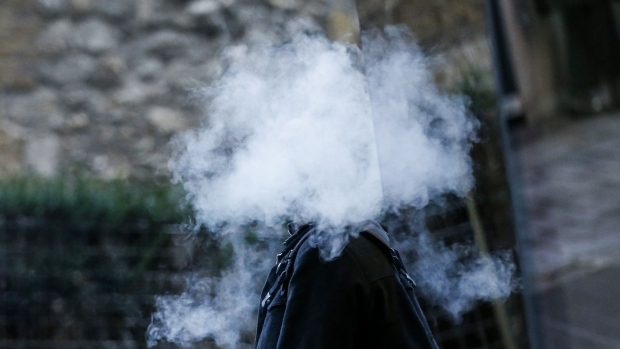Nov 15, 2019
New case of vaping-related illness in Quebec brings national total to 8
The Canadian Press

MONTREAL -- The third case of severe lung illness related to vaping has been confirmed in Quebec, the province's Health Department said Friday.
Department spokeswoman Noemie Vanheuverzwijn said the latest case was reported in Quebec's Outaouais region, adding that Health Canada has been notified.
The person who fell ill consumed a legal nicotine vaping product, as did the two other Quebecers, both from Montreal, who developed severe lung illness related to vaping, Vanheuverzwijn said in an interview.
She said patients with severe lung problems associated with vaping are diagnosed through a process of elimination. People are admitted to hospitals every day with breathing and lung problems, she said. "When (doctors) see it's not a bacteria or a virus, or something like that, it could be linked with vaping."
As of Thursday, federal health authorities reported that in addition to the Quebec cases, there were five probable cases of severe lung illness related to vaping in the country -- two in New Brunswick and three in British Columbia.
A spokesman for Quebec Health Minister Danielle McCann said Friday the minister is following the situation closely and is considering tightening the rules around vaping products.
McCann's office says authorities are working on a protocol for reporting cases of pulmonary disease related to vaping.
U.S. health officials on Nov. 8 said they had found a "very strong culprit" for the cause of the sudden outbreak of vaping illnesses in that country. More than 2,000 Americans who vape have gotten sick since March, many of them teen and young adults, and at least 40 people have died.
The Centers for Disease Control and Prevention in the U.S. said last week a chemical compound -- vitamin E acetate -- was found in fluid taken from the lungs of 29 patients across the country. The compound was previously found in liquid from electronic cigarettes and other vaping devices used by many of those who got sick.
It was the first time authorities found a common suspect in the damaged lungs of patients, the officials said.
Agency officials cautioned they cannot rule out all other toxic substances, and it may take animal studies to clearly show vitamin E acetate causes the lung damage that's been seen.





